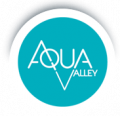Scientific Environment
Since its creation, the LCE has worked closely with its social and economic environment. This collaboration is evident through:
- Numerous research projects in collaboration with industry (4 FUI, 3 Eco-Industrie, 4 CIFRE theses, 11 theses co-financed by industry).
- Participation in competitiveness clusters that have labeled projects (SAFE Cluster, Secure Communicating Solutions Cluster, Water Cluster, Optitec Cluster, and MER-PACA Cluster).
- The participation of a unit member in the labeling committee of the SAFE Competitiveness Cluster.
- The publication of patents.
- The creation, in close collaboration with AtmoSud, of a supersite dedicated to measuring fine particles.
- The pursuit of a sustainable partnership with local authorities in the industrial zones of Étang de Berre and the Gulf of Fos through a non-profit association called "Institut Écocitoyen pour la connaissance des pollutions."
DOCTORAL SCHOOL

The LCE's researcher-teachers are all affiliated with the Doctoral School of Environmental Sciences (ED251), which includes a specialization in "Environmental Chemistry." This designation allows doctoral students to benefit from a specialization representative of their research theme. The unit director is a member of the Doctoral School's council.
The Doctoral School "Sciences de l’Environnement" brings together research and training potential in the exact sciences related to the multidisciplinary field of the Environment within the Aix-Marseille region. While the core of the constituent teams is within Earth Sciences (56 HDR), disciplines such as Chemistry (10), Life Sciences and Medicine (78), Engineering Sciences (11), and Human Sciences (20) also play an indispensable role. The Environment domain requires the systematic intersection of traditional disciplines, both for understanding natural or anthropogenic "global changes" and for the "sustainable management" of resources and waste from human activity. The emphasis on interdisciplinarity at the heart of the School's project and functioning gives it a unique status on the national map. The major thematic areas include Environmental Geosciences, Oceanography, Ecology, Environmental Chemistry, Process Engineering, Anthropology, and the links between Environment and Health.
INSTITUTE OF ESTABLISHMENT
ITEM

The Mediterranean Institute for Environmental Transition (ITEM) addresses the challenge of adapting society to environmental changes. Understanding these changes and their global impact is a major challenge of the 21st century to achieve sustainable modes of existence. ITEM positions Aix-Marseille University at the international level and contributes to implementing the Sustainable Development Goals. With its Mediterranean focus, the institute aims to develop interdisciplinary systemic research to understand the effects of global change on society and natural resources. ITEM brings together 14 research units, including the LCE.
OCEAN

The Ocean Science Institute conducts innovative research and training activities that combine oceanography (with its biological, chemical, and physical components), climate science, digital science, marine robotics, and engineering, reinforced by economics, law, history, and marine geography. The Ocean Science Institute aims to train a new generation of researchers, engineers, lawyers, and managers selected in France and abroad to address the significant challenges of the ocean environment. It brings together 13 research units, including the LCE.
COMPETITIVENESS CLUSTERS
By participating in numerous collaborative projects, the LCE is strongly involved in the following competitiveness clusters:
SAFE CLUSTER

Health, industry, environment, agri-food, etc., safety and security issues now concern all economic sectors and involve both citizens and the state. The core activity of SAFE Cluster (Security and Aerospace actors for the Future of Earth) is to collectively imagine and build innovative solutions for the security of populations and the environment.
AQUA-VALLEY

Born from the merger of the Occitan clusters SWELIA and WSM (Water Sensors Membranes) with the Water Cluster, the Aqua-Valley competitiveness cluster brings together a network of 250 members (large companies, ETIs, SMEs/VSEs; research and training organizations). Members are primarily located in the Occitanie and PACA regions, and their skills and expertise cover the entire water cycle. Based in Montpellier with an office in Toulouse, and supported in the PACA region by the Aix-based cluster Ea éco-entreprises, Aqua-Valley assists companies in innovation, skills development, partnerships, and internationalization of their activities.
MER-MÉDITERRANÉE CLUSTER

Labeled in July 2005, the Mer Méditerranée Cluster aims to sustainably develop the maritime and coastal economy in the Mediterranean basin, Europe, and the rest of the world. In Provence-Alpes-Côte d'Azur, Languedoc Roussillon, and Corsica, the cluster brings together scientific and economic actors around maritime and coastal themes with significant security and sustainability challenges.
OPTITEC CLUSTER

Recognized at the European level and a driving force for the photonics and imaging sector in southern France, the OPTITEC competitiveness cluster brings together over 130 companies, from start-ups to innovative SMEs and large groups, along with leading academic partners.
